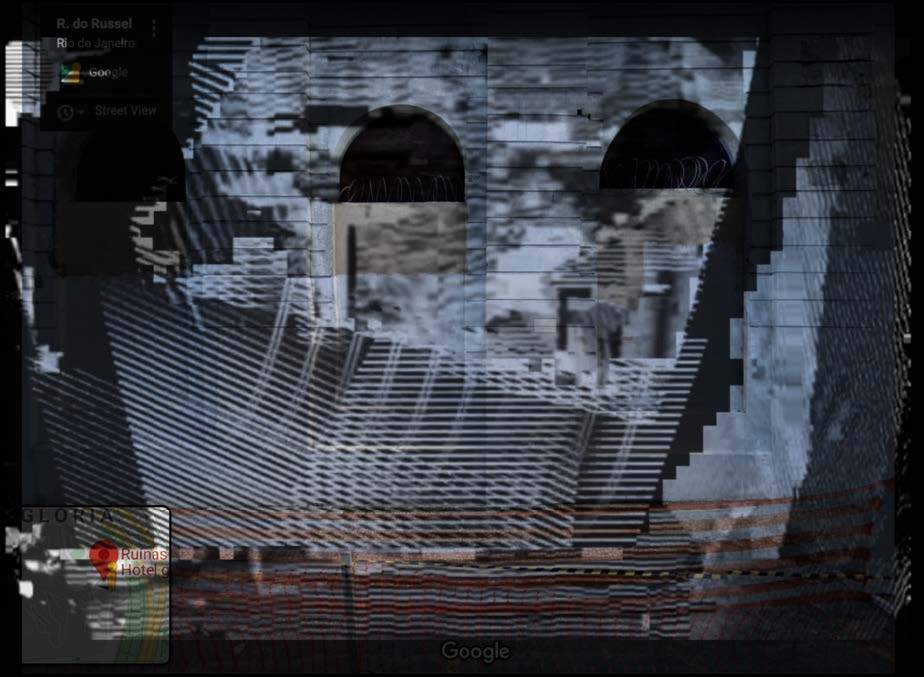12-14 June 2020/ online
Ruin Archives
for Possible Futures
for Possible Futures
Pedro Diaz is a percussionist, visual projector and researcher. Finishing a doctorate research in archive art at USP. Works with found objects, low cost devices and audiovisual installations.
Veronica Daniela Cerrotta is a musician, researcher and teacher. Studied music at Escuela de Música Juan Pedro Esnaola, specializing in piano; studied Visual Arts at the Universidad Nacional das Artes (Buenos Aires). Currently lives in Rio de Janeiro where she works as a sound technician and develops personal artistic projects. Her productions are based on the use of field recordings and oscillate between experimental music and the soundscape.
Gabriel Martinho is a radio artist, cinema documentarist, sound caption.
Joao Maia is a theater director and audiovisual artist of Pharmakolective: researches ritual practices and technology to proposecollective interactions trough focus, perception and intention to open human and cosmic connections.
Veronica Daniela Cerrotta is a musician, researcher and teacher. Studied music at Escuela de Música Juan Pedro Esnaola, specializing in piano; studied Visual Arts at the Universidad Nacional das Artes (Buenos Aires). Currently lives in Rio de Janeiro where she works as a sound technician and develops personal artistic projects. Her productions are based on the use of field recordings and oscillate between experimental music and the soundscape.
Gabriel Martinho is a radio artist, cinema documentarist, sound caption.
Joao Maia is a theater director and audiovisual artist of Pharmakolective: researches ritual practices and technology to proposecollective interactions trough focus, perception and intention to open human and cosmic connections.
The decolonial critique have develop the postcolonial debate focus on knowledge archives and social memory since it proposed itself to go further than the epistemological rationality based on colonial heritage, evidencing the still condition of coloniality and modernity on contemporary globalization. Decolonial authors see archives as 'interruptions' or 'interventions', privileging not so much the legislative aspect of such institutions, but their transformative capacities. Indeed, the concept of the decolonial archive must privilege 'epistemic disobedience' in order to generate decolonial freedom The documents legitimated and administrated by colonial institutions and officialized by offices and then, to History researchers now encounters trough decolonial critics the claim for forgotten and silenced reports, fragmented stories, personal archives, etc. What is the future of colonial archives in postcolonial nations and how should we rethink these archives in relation to decolonial futures? The archive emerged as a focus of interest in a range of (inter)disciplinary contexts. This 'archival turn' is partly indebted to a Foucauldian contribution to the political analysis of archive, as an artefact and as diapositives, for knowledge production. This double injunction produces both the interface that are inscribed the knowledge references as well invest itself as an area of symbolic narrative construction for social production. This epistemic shift signaled a complexity change in academic research of the archives, its systems and cultural reflexes. The micropolitics of creating and expressing archives is both contingencies for macropolitics of dominance and its administrative classification as well as an immanent expressions and performative affirmations of narratives and different ways of living. We look at the 'neodocumentalism' turn as critique of social appropriation of records, archives, documents and social history and memory in post colonial trauma and its decolonial propostions. Lacan's psychoanalytic approaches to trauma helps to support perspectives on ways of reporting and constituting social conflict together with the development of archival devices and contend. The decolonial approach is presented as evidence of conflicts in the formation of the archive and knowledge, its power relations and its construction of social history. The critique of archives in the decolonial debate calls for social appropriation production of knowledge and indicates a path to develop a network of research practices using digital humanities and distributed epistemologies. It raises the evidence of traumatic violence in the symbolic constitution of identities, memories, visibilities and ways of life through the production of archives and documents subjugated by the colonial system in the modernity. The biographical and performance aspects presented like in field recordings, lectures, footage cartographies and its compositions, complements the decolonial perspective in what is referred to as "neodocumentalism" in the field of Information Science.

Mantra - Performance
June 12, 21:00 (CEST) Meeting ID: 857 7938 5303 Password: 131273
June 12, 21:00 (CEST) Meeting ID: 857 7938 5303 Password: 131273
Lecture - Performance
June 13, 13:00 (CEST)
June 13, 13:00 (CEST)
*For the Zoom meeting, please, keep your audio/ video mute. Use the applicable pronoun and a real/ nick name in the Zoom profile (e.g. Newton's Binomial/ they). If you want to ask a question - let us know in the Zoom chat, we will switch your cam and mike.
Meeting ID: 898 6614 2688 Password: 854685
Meeting ID: 898 6614 2688 Password: 854685
Sound/ Video - Performance
June 14, 16:30 (CEST)
June 14, 16:30 (CEST)

